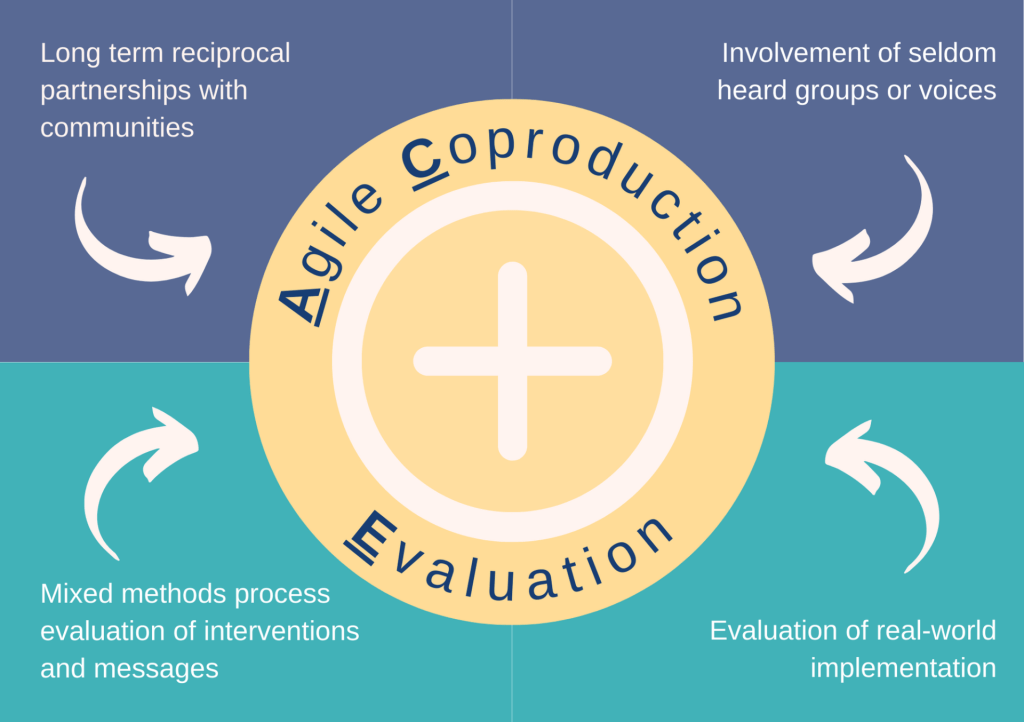Behavioural Science Network

What is the Behavioural Science Network?
Led by HPRU-BSE, the aim of the network is to provide a means for cross-unit colleagues to share ideas and resources, foster collaborations, and support the integration of behavioural science into public health research.
Who can join the network?
Connect with us if you are currently working in an HPRU, the UKHSA or another public health setting and would like to engage with the available behavioural science expertise from across the HPRUs, whether that be ‘light-touch’ through informal discussion, or if you are seeking more formal input, consultancy or collaboration.
If you are a social or behavioural scientist and wish to share current practise, expertise and disseminate research, then the network offers a supportive way to connect with peers and colleagues and discuss current challenges.
What do we do?
Activities of the network include:
- Convening regular meetings and themed webinars.
- Offering avenues to work collaboratively to those seeking or providing behavioural science consultancy.
- Signposting to relevant resources, including training and development opportunities.
- Offering access to on-demand training videos, live webinars, and drop-in workshops on the Person-Based Approach to help you design behavioural interventions.
To ensure the network is a useful resource for its members, we are further developing and adding to these ideas in collaboration with network members.
For questions, or to be added to the network:
ACE Framework
Health protection research should always consider the needs of people who are most at risk. To do this the NIHR HPRU in Behavioural Science and Evaluation at the University of Bristol has developed the Agile Co-production and Evaluation (ACE) Framework. This framework can be used to create messages and solutions which are needed quickly through a combination of rapid research, co-production and evaluation.

ACE was developed by experts in public health, psychologists, and members of the public, using their experiences from working together during the COVID-19 pandemic. In times of health crises certain communities are often at higher risk, such as those with lower incomes or from minority groups, however their opinions and needs aren’t always included in research. The ACE framework makes sure that these groups can participate in the research process, so that the resulting health interventions work for them.
The ACE framework is starting to be used by the NIHR BSE and other researchers to tackle public health problems and reduce health inequalities in emergencies by quickly creating and testing solutions with input from the communities at risk.
Paper proposing the ACE framework can be found here
How has the ACE framework been used? Read about the importance of getting the message right here